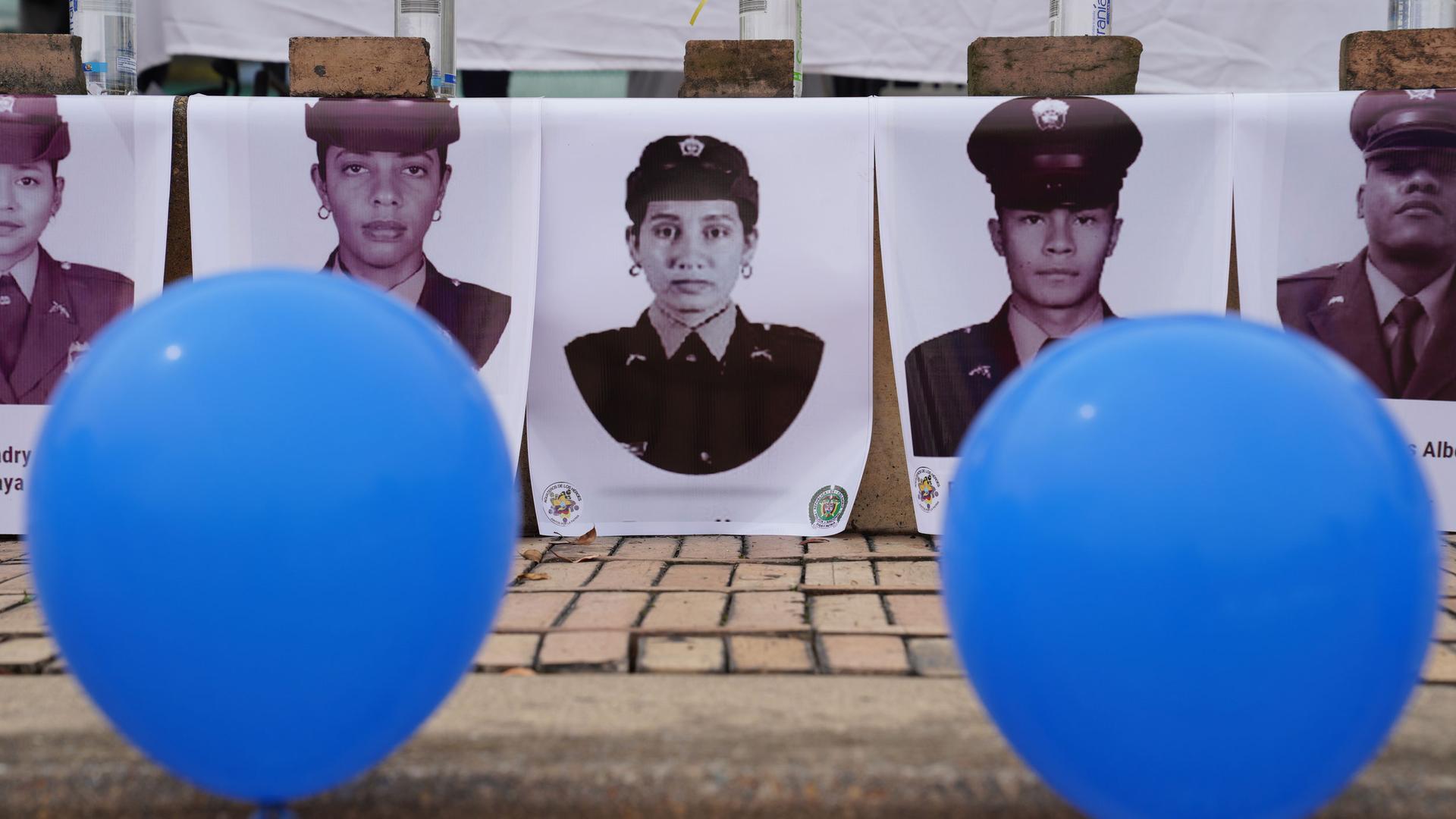Dressed in white, Gladys Aguilera attended a rally in solidarity with dozens of policemen who have been killed in Colombia recently.
Her son is a detective in a remote area of the country. And she’s constantly worried about his safety.
“Just wearing a police uniform turns him into a target,” Aguilera said. “So, every day I pray to God for his protection.”
A recent wave of attacks against police has put Colombia’s security forces on edge, and sparked several demonstrations in support of law enforcement. In marches, candlelight vigils and outdoor masses, people have gotten together to pray for fallen cops.
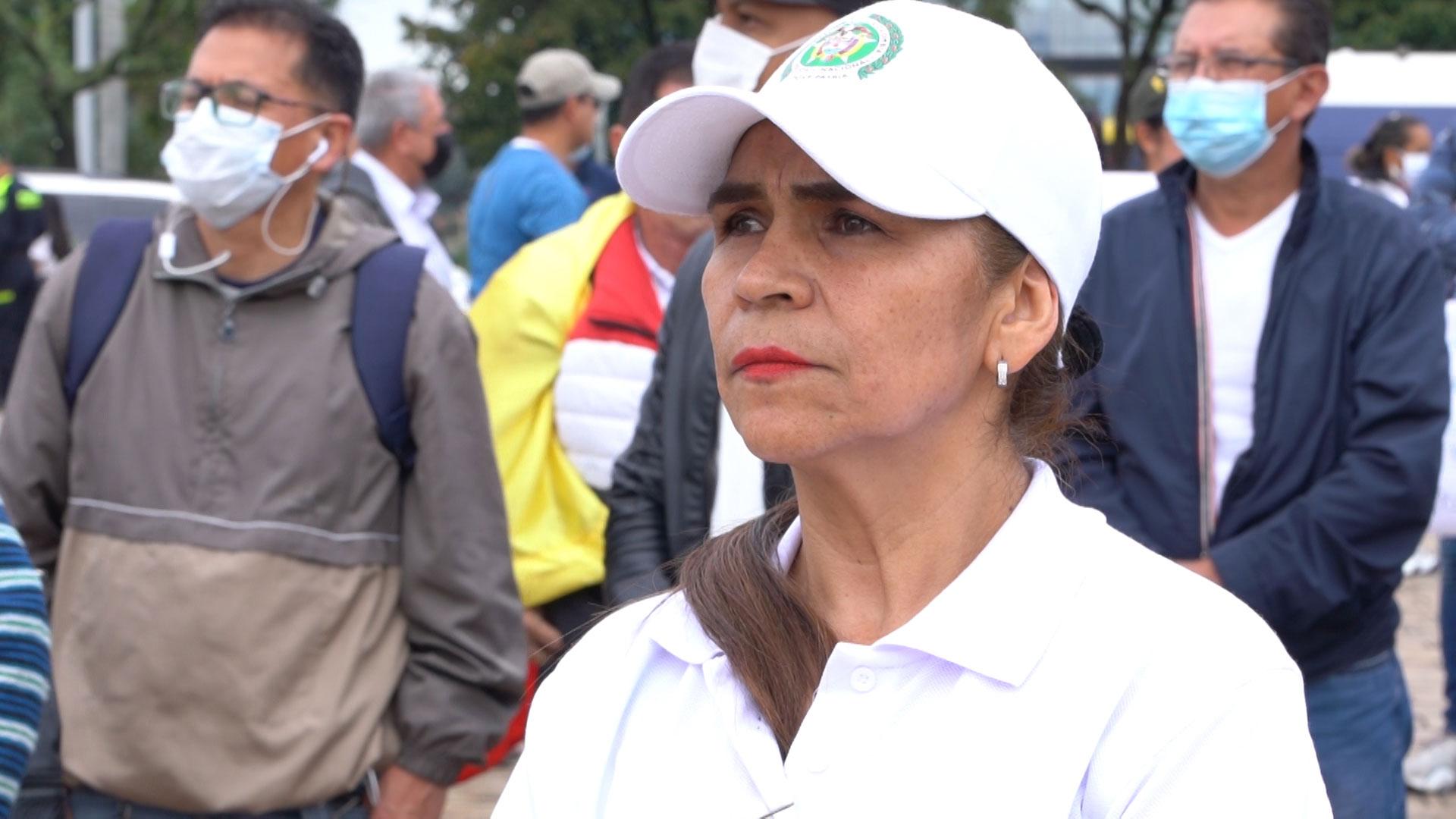
In July, 13 police officers were killed, and almost 90 attacks were staged against police and military targets, mostly in rural areas, according to CERAC, a think tank that monitors violence in Colombia. The group’s director, Jorge Restrepo, said it was the most dangerous month for the country’s security forces in the past two decades.
Attacks against police suggest that Colombian authorities are still struggling to pacify many rural pockets of the country, despite a 2016 peace deal between the government and the nation’s largest guerilla group, the FARC (Revolutionary Armed Forces of Colombia).
Now several smaller criminal organizations are fighting over drug-trafficking routes, illegal mines and other resources abandoned by the rebel group. And they’re targeting police officers, human rights leaders and environmental groups that get in their way.
“After the signing of the peace deal with the FARC, attacks against the police and military reduced significantly in many areas of Colombia,” Restrepo said.
“This huge increase in attacks that started at the end of June means that many criminal groups are now designating the military and the police as a [target]. And that’s a big shift.”
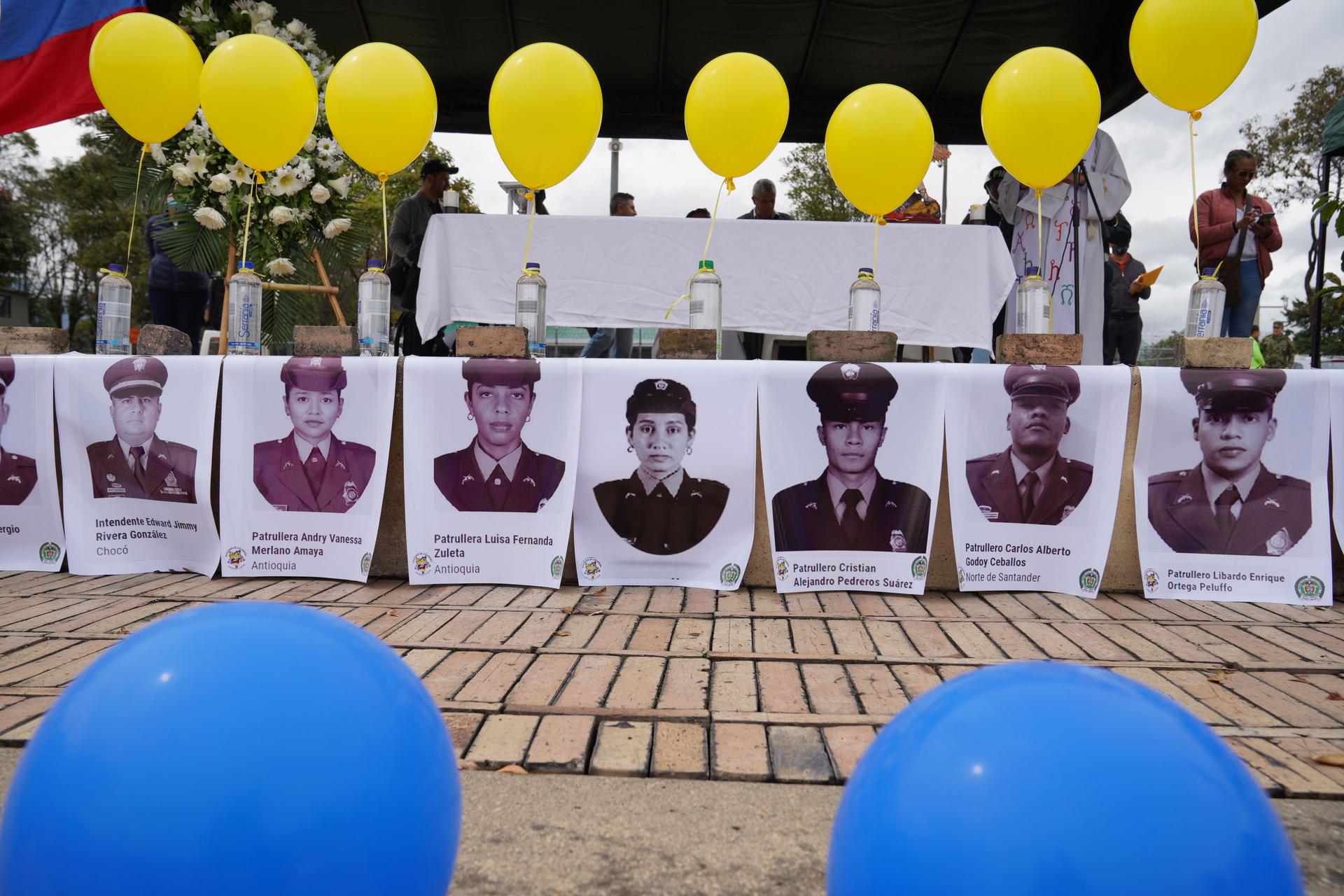
Colombia’s government has blamed most of the recent police killings on the Gulf Clan, a drug-trafficking group that runs extortion rackets and exports massive amounts of cocaine to the United States.
Its leader, Otoniel, was extradited to New York in May, where he faces terrorism and drug-trafficking charges.
Security analysts believe that over the summer, the Gulf Clan has been retaliating for Otoniel’s extradition and say the group has focused on easy targets.
Many of the officers who were killed over the past two months have been rookie cops in their 20s, who were shot at while patrolling towns in the north of Colombia, where the Gulf Clan has hitmen and informants.
One officer was murdered while he was having lunch. A video published on Twitter shows people rushing him to an ambulance.
Restrepo said that the Gulf Clan might be trying to strike fear into the police officers, so that they stay out of its business. But the group could also be trying to send a message to Gustavo Petro, Colombia’s newly inaugurated president.
“They are trying to appear strong,” Restrepo said. “So that they can extract more benefits” from the incoming government.
During his inauguration speech on Sunday, Petro said that he wanted to start peace negotiations with Colombia’s rebel groups and drug cartels in order to reduce violence in rural areas.
That proposal was welcomed by the Gulf Clan, which said in a statement that it will stop attacking police and military targets as a “sign of good will.” The group also said it is interested in peace talks, though it gave no indication of how long its truce will last.
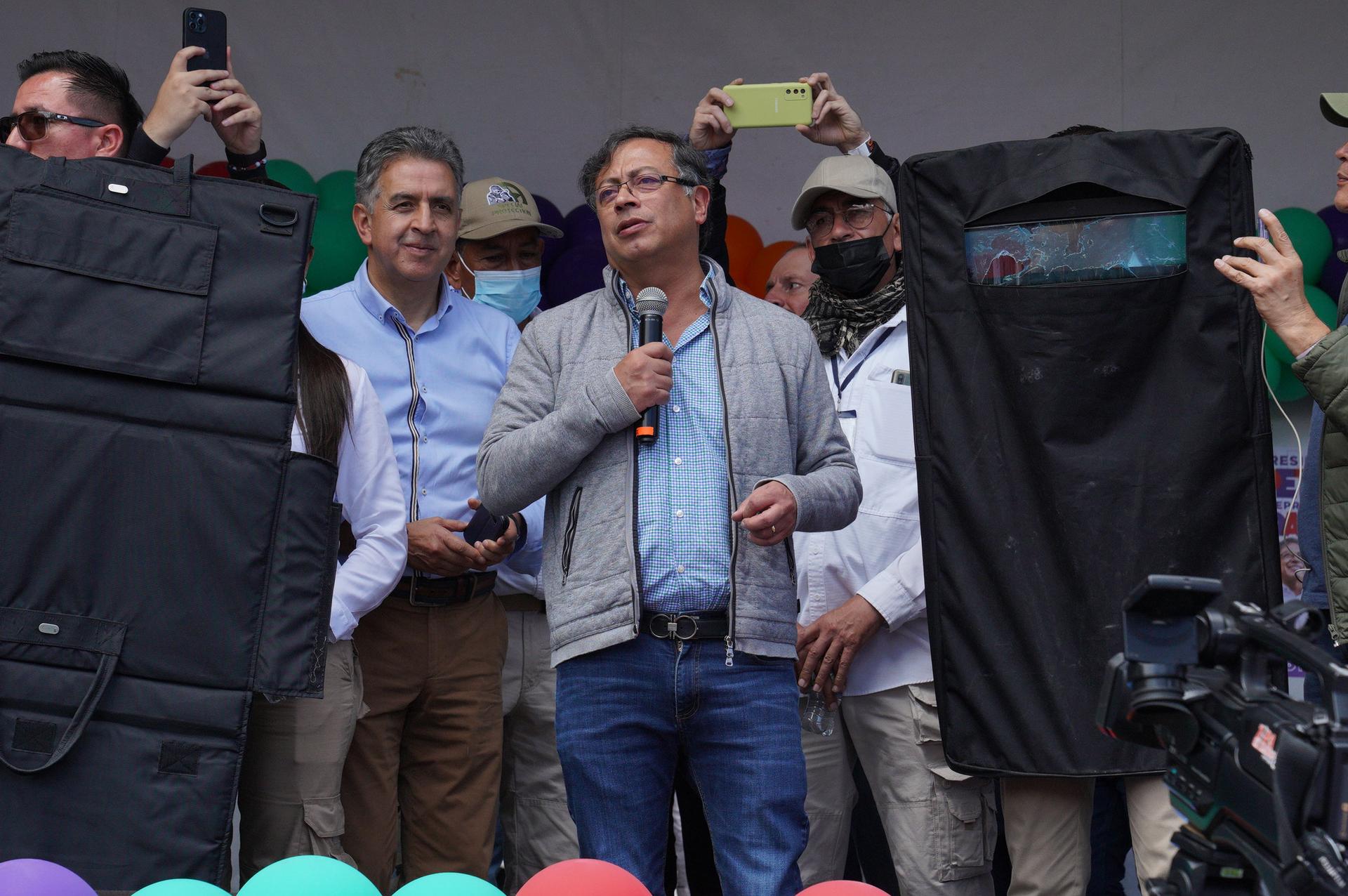
But making peace with groups like the Gulf Clan can be complicated.
Sergio Guzman, a political risk analyst in Bogotá, said that following Otoniel’s extradition, the Gulf Clan no longer has a clear chain of command. International treaties also mean that peace talks are no longer just a question of giving amnesty to criminals who lay down their guns.
“The Rome Statute ,which Colombia is a part of, requires armed actors who demobilize or demilitarize to make a full commitment to the truth, repair their victims and actually serve jail sentences that are quite robust,” Guzman said. “And we don’t know yet if they’re willing to do all those things.”
There are other groups that have been staging attacks on police, like the National Liberation Army, which has also expressed interest in starting peace talks with Colombia’s new government.
At the rally in support of police, Gladys Aguilera said that while peace deals come about, she wants the new government to ensure better working conditions for police officers.
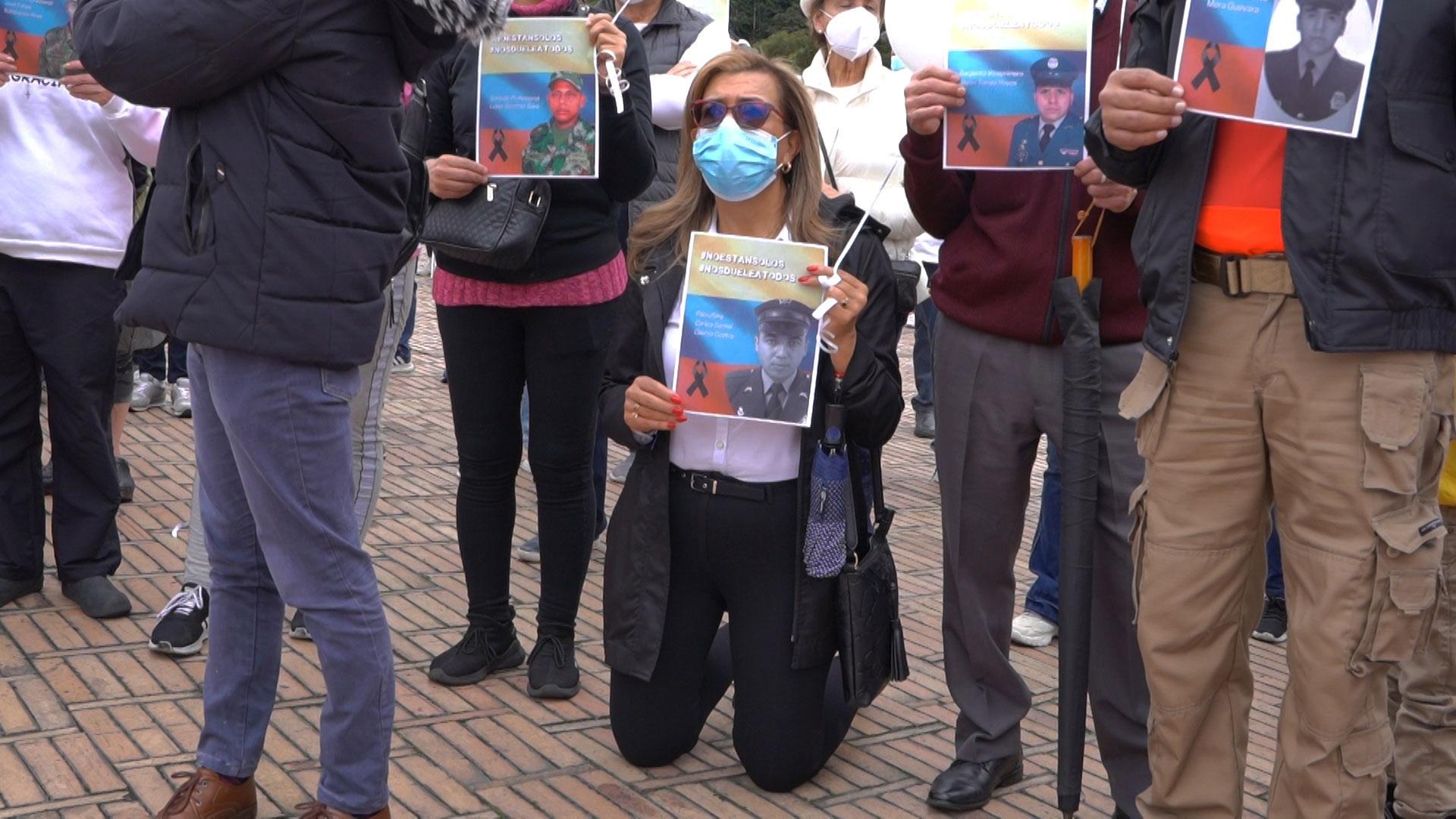
Police in Colombia are already facing greater government scrutiny for their handling of protests last year, in which dozens of people were killed. And they’re often transferred with little notice to violent locations, where they are paid low salaries and forced to spend months at a time away from home.
“These are human beings who are trying to protect us,” Aguilera said. “And they’re already making many sacrifices to serve their country.”
Our coverage reaches millions each week, but only a small fraction of listeners contribute to sustain our program. We still need 224 more people to donate $100 or $10/monthly to unlock our $67,000 match. Will you help us get there today?
